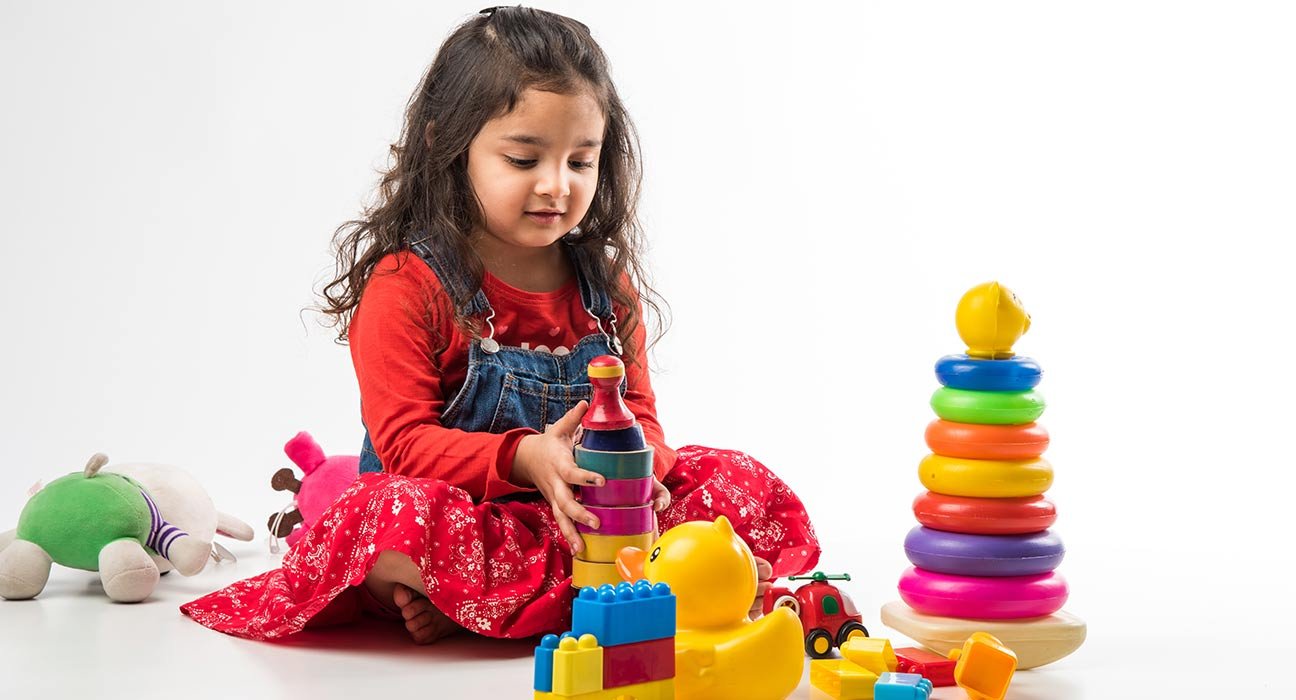Do you know, There is a ton of information that supports the idea that playing with toys is a crucial part of a child’s development? All children like playing with toys and the various functions that toys have in their imaginary worlds and games. However, toys go much beyond just mere playthings. Numerous studies have demonstrated that children learn through interaction, and toys provide opportunities for hands-on learning that can implant fundamental abilities that will help kids for the rest of their life. Playing with toys is a treasured childhood activity that offers more than just amusement and fun. Play has a huge effect on a person’s psychological well-being, which is something that experts and researchers are increasingly realizing. This article explores the several ways that playing with toys can promote general emotional growth and have a good impact on mental health.
5 toys with mental health benefits
- Baby dolls – feeding, dressing, rocking, bathing Children learn empathy and compassion through baby dolls. To provide for their babies’ needs, parents must learn how to react to their cues. Children use their imaginations to practice this crucial social skill when they play make-believe with dolls. It almost goes without saying but playing with baby dolls can be beneficial for kids of both genders.
- Play–doh – Kids have a lot of fun using Play-Doh and comparable toys like modelling clay and kinetic sand to engage in sensory play. Smelly markers, musical toys, and water tables are some excellent examples of toys that provide kids with engaging sensory experiences. Sensory play activities help children connect with their five senses. Although it has been demonstrated that this kind of play promotes linguistic and motor development. It also has positive effects on emotional well-being. Similar to paying attention to the breath while practising mindfulness, focusing on sensory input is a type of mindfulness.
- Dress-up clothes – Dress-up games are more than just entertaining for pretend play. Kids can experiment with different ways of thinking, performing, and relating to others by donning a costume. Roleplaying is a type of therapy that theatre therapists frequently employ with both children and adults to promote mental wellness. Drama therapists contend that every one of us plays a part in life that shapes how we act. For instance, we presumably behave very differently at work, at school, with our families, and when we are out with friends. Dress-up gives kids a chance to practice the social and emotional skills they need to function in all these diverse contexts, which they are still learning.
- Toy weapons – Children who play with toy firearms do not become more aggressive as adults. In fact, acting out battle or war scenes might teach kids to better understand and manage their own rage. Children role-play situations to better understand them and gain control over their environment. Children learn how to control their own anger and safely express it in ways that don’t injure people in real life when they act out angry scenes.
- Play kittens – Children can practice being compassionate and caring by using play kitchens. Many kids use the play kitchen to prepare meals for their dolls and other toys, but youngsters also engage with parents or other adults in the playroom more thanks to play kitchens. A lot of households view food as affection. Serving food to parents or other special people while playing kitchen gives kids a chance to show their own love and care, even when the food is only fake. This form of interactive, open-ended play is excellent in play therapy for fostering attachment between children and parents.
Emotional benefits of toys
Toys are essential in allowing us to express our feelings and unwind. In times of stress or emotional upheaval, they provide a special and secure avenue for expressing our feelings, which can be extremely helpful. Toys can help with emotional release and relaxation in a number of ways-
- Emotional expression – Toys give children a non-verbal way to communicate their emotions. Playing with toys enables us to direct our emotions into the play when we are overwhelmed or unable to express them vocally. For instance, squeezing stress balls or shattering clay can help you let out pent-up resentment or fury.
- Sensory Activation – Numerous toys provide sensory stimulation, whether it is through plush fabrics, gentle textures, or relaxing sounds. Our nervous system can be calmed by playing with these sensory toys, which will lessen sensations of stress or anxiety.
- Imagination and creativity – Playing with toys that promote imaginative play, like dolls or action figures, enables us to construct stories and scenarios that capture our feelings and experiences. We can safely and creatively explore and resolve difficult emotions through this approach.
- Focus and Mindfulness -Some toys, like puzzles or fidget toys, call for concentrated attention. Playing with these toys encourages mindfulness and relaxation by helping to divert our attention from worries and into the present.
- Distraction – Playing with toys can serve as a constructive diversion from the difficulties of everyday living. It allows us to refresh and reset our emotions by removing worries from our brains.
- Social connection – Playing with toys may be a social activity, especially when done with others like friends and family. Playing with others can promote a sense of connection and support, which can help to lessen emotional pressures.
- Stress reduction – Playing with toys is a great way to release tension naturally. Endorphins, the “feel-good” hormones, can be released through imaginative play or interaction with sensory devices, lowering feelings of tension and anxiety. It promotes relaxation and emotional equilibrium by offering a secure setting to unwind and escape from daily stresses.
Role of toys in a therapeutic setting
Play Therapy :
Play therapy is a specialized type of psychotherapy that encourages children, to express their feelings and thoughts via play. It offers a secure and encouraging setting for kids to interact and overcome their emotional and behavioural difficulties.
Trained therapists engage kids in therapeutic play activities during play therapy sessions using a variety of toys, games, and art supplies. By participating in these activities, kids can express themselves in ways that traditional talk therapy would find problematic or difficult. Play develops into their native tongue, enabling children to express and process their feelings, worries, and concerns.
Play therapy seeks to increase children’s emotional regulation, resilience, and ability to cope in better ways. Children struggling with a variety of problems, including trauma, anxiety, despair, grieving, behavioural disorders, etc may find it helpful.
Play therapists watch and analyze the child’s play activity to get an understanding of their innermost feelings and thoughts. Through this procedure, therapists can customize their interventions to deal with certain issues and encourage the child’s emotional well-being to improve.
In general, play therapy provides kids with a kind and efficient means to work through their emotions, understand their difficulties, and acquire the skills they need to deal with life’s complications in a healthy and positive way.
Research evidence
- It has been demonstrated that playing with toys helps both children and adults feel less stressed and anxious. In children with autism spectrum disorder, playing with toys and sensory materials significantly reduced cortisol levels, the stress hormone, according to research in the American Journal of Occupational Therapy.
- Playing with educational games, toys, and puzzles can have a favourable effect on brain growth and cognitive performance. Playing with construction toys and puzzles improves spatial skills, which are important for problem-solving and mathematical thinking, according to a study published in the journal PLOS ONE.
Playthings that foster imagination foster innovative thinking and problem-solving skills. According to research in the Creativity Research Journal, kids who play with toys demonstrate higher levels of creativity and originality.













Leave feedback about this